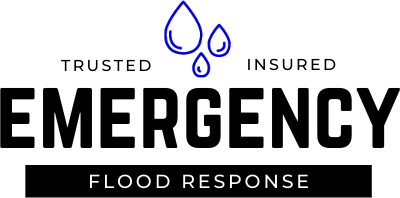Water damage in a rental property can be a significant inconvenience and health hazard, causing stress and uncertainty for tenants. Whether it’s a leaking roof, a burst pipe, or flooding, understanding your rights and the responsibilities of your landlord when it comes to repairs is crucial. Keep reading to learn more!
Understanding Landlord Responsibilities
Landlords are generally responsible for maintaining their rental properties and ensuring they are in a habitable condition. This includes addressing and repairing any water damage promptly. However, the specific timelines and obligations can vary depending on the state or country’s laws where the property is located.
Legal Timeframes for Repairs
 In most jurisdictions, landlords are required to make repairs within a “reasonable” timeframe. This term, however, can be somewhat subjective and often depends on the severity of the damage and the impact on the habitability of the property.
In most jurisdictions, landlords are required to make repairs within a “reasonable” timeframe. This term, however, can be somewhat subjective and often depends on the severity of the damage and the impact on the habitability of the property.
For minor water damage, such as a small leak under a sink, a reasonable repair time might be considered within a few days to a week. For more significant water damage that affects the living conditions of the property, such as flooding or extensive leaks that lead to mold, the repairs should be addressed more urgently – often within 24 to 48 hours.
Tenant Rights and Actions
If you’re dealing with water damage in your rental property, here are steps you can take to ensure the issue is addressed promptly:
- Notify Your Landlord Immediately: Communication is key. Inform your landlord about the water damage as soon as possible, preferably in writing. Provide a clear description of the problem and any potential sources of the leak or flooding.
- Document the Damage: Photograph or videotape the water damage and any affected belongings. This documentation can be essential for resolving any disputes regarding the extent of the damage or the timeline for repairs.
- Understand Your Lease Agreement: Review your lease agreement for any clauses related to repairs and maintenance. Some agreements may specify timelines for addressing maintenance issues.
- Know Your Local Laws: Familiarize yourself with local tenant rights and housing codes. Many states or municipalities have specific laws outlining landlords’ repair responsibilities, including timeframes for addressing water damage.
- Request Temporary Accommodations if Necessary: If the water damage makes your rental unit uninhabitable, you may be entitled to request that your landlord provide temporary housing until the repairs are completed.
- Escalate if Needed: If your landlord is unresponsive or fails to make repairs within a reasonable timeframe, you may need to escalate the issue. Consider contacting local tenant advocacy groups for guidance, or explore legal options such as withholding rent (in accordance with local laws) or terminating your lease early.
Preventative Measures
Landlords can take steps to prevent water damage by performing regular maintenance and inspections of the property, addressing any issues promptly before they escalate. Tenants can also help by reporting leaks or potential water damage sources as soon as they are noticed.
Water damage in a rental property is a serious issue that requires prompt attention. While the definition of a “reasonable” timeframe for repairs can vary, understanding your rights and responsibilities, documenting the damage, and communicating effectively with your landlord can help ensure that the repairs are addressed in a timely manner. Remember, local laws and regulations play a significant role in determining the specifics, so it’s important to be informed about the rules in your area.
Living in a safe, healthy, and habitable environment is your right as a tenant. If you’re dealing with water damage, take the necessary steps to protect that right and ensure your home is restored to a proper living condition as soon as possible.

